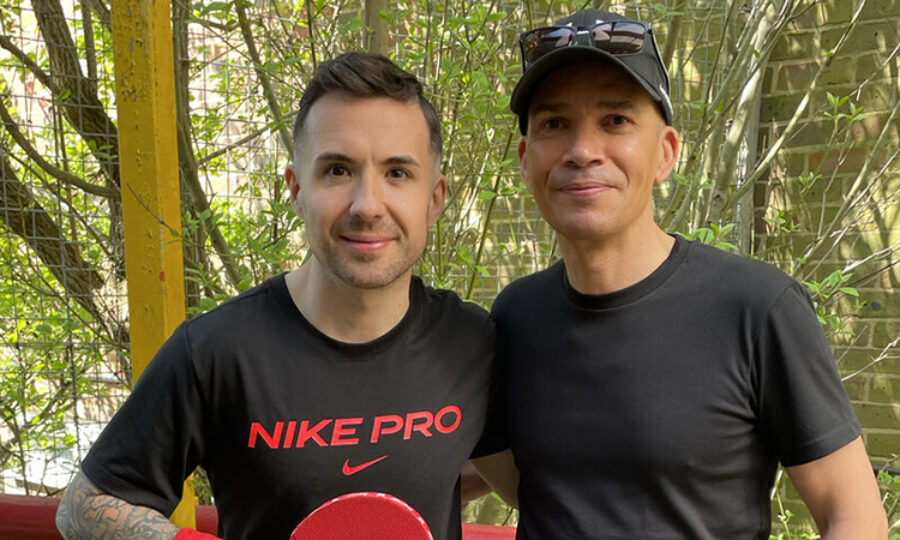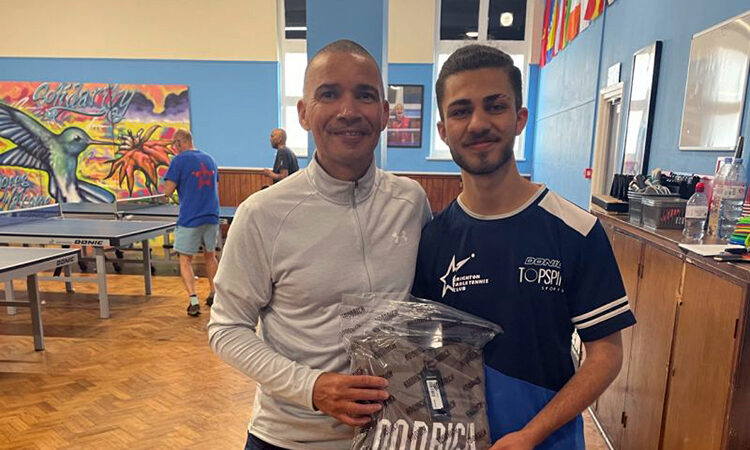In conversation: Les Rowe

Long term youth worker on helping young people in Islington overcome barriers
For four decades, Les Rowe has worked with care leavers and other young people, supporting them to realise their potential through further education, employment, training, and mentoring. He has also done a range of community work with young people in Islington and London more broadly, from karting programs to working closely with the grand mentor’s scheme, which sees young people paired with a grandparent figure.
In his role as an education, employment and training advisor at Islington Council, Les has first-hand insight into the issues affecting young people in the borough and what adults and other members of the community can do to help Islington’s next generation. He talks about the issues affecting young people in Islington, the barriers they face – and how he and others in the community are helping to overcome them
What motivates you to work with young people?
I had similar struggles some other young people have: I am care experienced and I did not particularly like school. I eventually ended up working in a youth and community centre with my stepdad. He said, “Les, why don’t you come and do a summer scheme with us?” – and I realised it was for me. I did not leave. I learned on the job and got all my qualifications.
Over 40 years, I have had experiences working across many different areas: from children’s homes, homeless shelters, an assessment centre working with young people who have experienced sexual and physical abuse, and youth and community centres. I have been really interested in helping young people think about the barriers they face, and how they can overcome them.
Can you tell me a bit about your role at the council?
I’ve worked for Islington’s leaving care service for 20 years. When I joined in 2002, it was specifically to meet with a group of young people in the leaving care service. My remit was to evidence their education, employment and training activity, three months prior to or one month after their 19th birthdays. We needed to be in contact with them to understand what they were currently doing or aspired to do.
I would link young people into re-engagement programmes and support services and in this way, I made links good with community groups like Arsenal in the Community and was able to map education, employment and training opportunities available in Islington. The main focus of my work is to help young people access those opportunities.
What sorts of issues are young people in Islington facing?
From the perspective of the young people I work with, it is issues such as mental health, drug and alcohol misuse, teenage pregnancy, and criminality. For care leavers, especially those who have come into care late, it is difficult to engage and build trust.

What changes have you seen during your time working in Islington?
The most significant changes have been gun crime, gang culture, post code wars and of course poverty, all of which have a real impact on young people. They can be quite scared to cross a road because it could mean entering another postcode and potentially going into a rival gang’s territory. This makes the area where they live exceedingly small, in terms of where they can go or how confident they feel about crossing a boundary. It can make it tricky to access things we all take for granted, such as education and employment opportunities. This then makes it harder to invest in and engage with their local community.
What do you think can help young people reach their goals?
Being realistic about what skills they have and what it will take to get them to reach their goals. I remind young people that there are no shortcuts: if you have dreams of being a president or prime minister, you need to be prepared to put in the work, otherwise the chance of achieving that aim will be reduced. I also remind them that while they are working toward a particular goal, something else might happen for them – there are possibilities that people do not see sometimes. These opportunities can materialise because of meeting someone or having an experience, so I encourage young people to have an open mind.
What do you think is the role of older members in the community in supporting the next generation?
This is important. As the saying goes, it takes a village to raise a child. One of the things I try to do in my service is make sure that young people are able to access the services they need in one building, rather than signposting them to various external organisations. For example, young people can access a department for work and pensions (DWP) advisor, a looked after children nurse, and our grand mentor scheme all at Elwood Street.
Grand mentors are now embedded in the leaving care service. Grand mentors are retired professional people over the age of 50 who walk alongside our young people, supporting them towards independence. I also have my own community interest company, supporting young people with incentives via clothing brands such as HOODRICH, Adidas, Dr Martens and Nike.
What advice would you give a young person struggling?
Try and connect with someone. Anyone. It doesn’t have to be anyone specific; my roles models were all sorts of people – my uncles, friends, people I met playing football. I had lots of different role models for different reasons. Try to connect with people who you can do something a bit different with. It is so important to broaden your horizons.
